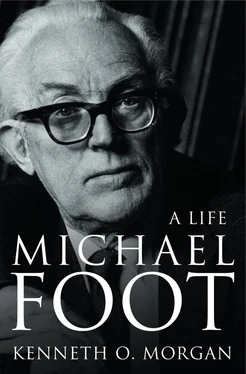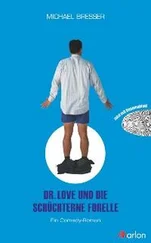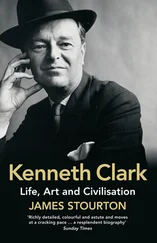Despite all this manifold activity, which began long before his resignation as editor of the Standard in August 1944, the bedrock of Foot’s world was now the Labour Party, albeit via left-wing movements, non-Communist though pro-Russian, kicking hard against the restraints of being yoked in Churchill’s coalition. Foot was never an admirer of Attlee’s leadership, and the wartime years underlined the fact. One protest in which he was involved was the Bristol Central by-election of February 1943, one of many awkward by-elections for the government at this time. Here there was an Independent Labour candidate in the person of Jennie Lee, Aneurin Bevan’s wife, who had recently left the ILP but who declined Acland’s invitation to join the Common Wealth Party and ran on an Independent Labour platform to campaign for socialist policies and a break with the coalition. The ILP ran a candidate against her out of revenge. The entire affair was distinctly embarrassing for the Labour Party. However, Foot (despite being editor of the Standard) went to Bristol to campaign hard on behalf of Jennie Lee and against the idea of an electoral truce. Unfortunately Bristol Central, which included the city’s central business area, was the least promising of the five Bristol seats, and there was a very low poll since so many voters were away during wartime. Jennie Lee lost by 1,500 votes to the widow of the former Conservative Member, Lady Apsley, and there was actually a swing to the government, in contrast to almost all other contests at the time. 28 This was a solitary venture by Foot, who of course was free to electioneer without inhibition after he left employment with Beaverbrook.
Bristol Central tended to confirm that Foot, having broken with Cripps, was finding another inspirational guru in Jennie Lee’s husband. Going out of his way to campaign for her showed how he was swinging from Beaverbrook to Bevan. He had known Nye for some years, dating from a meeting during the Monmouth election in 1935, and had got much closer to him during his time on Tribune . Bevan, as we have seen, was one of Beaverbrook’s many left-wing associates, and it was he who recommended Foot for a job with Express Newspapers in 1938. He was at this time editor of Tribune himself, though his talents did not really lie in the field of journalism. But in the wartime period, with Bevan emerging as a towering critic of Churchill and the coalition on many issues, Foot became his most intimate ally. In 1944 they collaborated in campaigns on the future of Poland, and especially in attacking Churchill for British military intervention in the civil war in Greece. Foot would be more than his comrade. He would be his Boswell, his Engels, his John the Baptist, and of course his parliamentary heir.
Long after his death in 1960 Bevan remained the most important person in Foot’s life, not excluding Jill. He was central to Foot’s every crisis of conscience, the permanent sounding board for his socialist values. Their difference of view over nuclear weapons was more searing for Foot’s psychology than any divorce could have been. Foot’s passionate admiration for this brilliant, articulate tribune, who came not from the literate suburban bourgeoisie but from Tredegar in the working-class cauldron of the Welsh mining valleys, was unshakeable. Bevan stood with Foot on every possible issue. He was a citizen of the world. He strongly endorsed Indian independence, a free state for the Jews, friendship with the Soviet Union and an early second front, public ownership as the basis of a socialist transformation, a welfare state, and a free and open society. Foot was excited by the nature of Bevan’s socialism, with its background in south Wales syndicalism and ideas of industrial democracy as opposed to bureaucratic statism. He admired his libertarian Marxism, his natural use of language, his open-mindedness towards other cultures, his brilliance as an orator both on the stump and increasingly in the Commons.
Most of all, he admired his style. Bevan was a vivid, colourful man, with a love of painting and literature; he was captivated by a book like Stendhal’s Le Rouge et le noir . He shared with Foot a liking for the more exotic versions of liberal philosophy, notably the works of the Uruguayan author José Rodo. He had a genuine love of complex ideological debate, attacking the enemy’s argument at its strongest point. Also, in Foot’s brilliant phrase, he was ‘a sensual puritan’, with a shared love of Venice and an attraction to women that went far beyond his own beguiling but wayward wife. He dressed well, he liked to dine well at the Café Royal, he enjoyed wine, especially Italian. He far transcended the other, more staid Welsh MPs dining on the ‘Welsh table’ in the Commons: Jim Callaghan would say Nye would only join them for a meal when he was in political trouble. 29 Bevan straddled the worlds of politics, the arts and journalism. His associates ranged from Koestler to Brendan Bracken, who provoked him by calling him a ‘lounge lizard, a Bollinger Bolshevik’. Bevan was a captivating figure. If often difficult and egotistic, he was also perhaps the most original and visionary politician ever produced by the British working-class movement. In addition he had a range of skills that left his people the National Health Service, Britain’s greatest contribution to civilization in the twentieth century. He proved himself an artist in the uses of power. He loved Michael for his literacy, his integrity and his courage, his love of the romantics. Bevan liked to declaim aloud the poetry of Keats and Wordsworth, and was another enthusiast for Wells, though he could never quite fathom Foot’s regard for Swift. Bevan’s Why Not Trust the Tories? , a brilliant philippic published in 1944, showed a heavy influence from Foot, not least the famous peroration citing Rainboro of the Levellers in the Putney debates. To Foot, nothing more confirmed his low opinion of Attlee and his near-hatred of Gaitskell than what he felt was their conspiracy to remove Nye in 1951. For Bevan represented everything he felt was most worthwhile in this world: ‘More than any other in his age he kept alive the idea of democratic socialism,’ and gave it a vibrant and audacious quality. 30 Foot’s own equally audacious biography was to provide him with the most glittering of memorials after he was gone.
After leaving Express Newspapers, Foot needed employment. In fact it had already been guaranteed. In the summer of 1944 he became a regular columnist for the Daily Herald , a post which he retained until 1963. He had not had much regard for the paper in recent years, after its brilliant beginning in the Lansbury years after 1913. It was taken over in 1929 by Lord Southwood, owner of Odhams Press, ‘a small-minded man interested only in profits’, in Foot’s view, and ‘an absurd figure to be in charge of a Labour paper’. 31 However, Foot did have an immense regard for the Herald’s editor, Percy Cudlipp, a native of Cardiff Like Foot he had been a very youthful editor of the Evening Standard; indeed, he was appointed by Beaverbrook at the even younger age of twenty-seven. Along with his brother Hugh of the Daily Mirror , Percy transformed the popular left-wing press: ‘He could do anything on a newspaper. He could take anybody’s copy and make it better.’ In later life Foot declared that Cudlipp was ‘the greatest of all the popular editors’. 32 He was also an autodidact, a man of considerable culture, with a love of music, a flair for light verse and a close friendship with John Betjeman. Cudlipp had long been angling for Foot’s services, and he moved to the Herald immediately on leaving the Standard . He would write two columns a week, on Tuesdays and Fridays, for less remuneration than on the Standard , but with more scope to do other things, including write for Tribune . Cudlipp would prove to be a stout defender of him when he later got into trouble with Transport House.
Читать дальше












